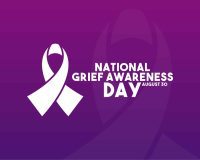Have These Two Health-Related Documents
An advanced directive, also known as a living will, and a durable power of attorney (POA), also known as a health care proxy, are the two most important documents you should have for your end-of-life planning. The living will lays out the type of medical treatment you want – things like feeding tubes, life-saving medications, treatments, etc. This document clearly outlines your wishes regarding your health and the treatment you receive. Having a durable power of attorney in place gives the person you chose to be your proxy the ability to be able to speak for you and ensures that your wishes get carried out in the event you are unable to speak for yourself. This person can be a spouse, family member or friend.
Additional wishes or certain details you might want for your final hours (music, soft lighting, being near a window, the closeness of a pet) aren’t covered in these documents – but you can easily include them with your living will and POA to provide further guidance of your wishes to your physician and your family.
Cover Estate Planning Basics
A will is one of the best planning tools anyone can have. In the event of an unexpected death, it can answer a lot of questions and leave surviving family members with a blueprint of the household financial. Depending on the complexity of assets, a will can be a simple document anyone can create online such as LegacyWriter or LegalZoom (which also provides health-care proxy and healthcare advanced directive). Using an estate planning attorney would be a better choice if there are trusts that need to be set up or guardians that need to be named for young children.
Share Wishes With Loved Ones
Even the best-laid plans won’t help unless you relay them to family and healthcare providers. “A living will that’s just locked in a safe deposit box won’t do you any good,” says Jon Radulovic, vice president of communications for the National Hospice and Palliative Care Organization (NHPCO). He says to discuss your plans with loved ones, medical professionals, a life partner, etc. It’s also a good idea to choose a regular gathering, such as a reunion or holiday, to give your family a 10-minute update on your plans in case anything has changed throughout the year.
Keep in Mind That Beneficiaries Can Override a Will
A common misconception is that nothing can change what you put into the will in terms of assets going to named beneficiaries – however, the beneficiary can override anything in your will. A matter of simple estate planning and updating it for major life events is a simple and easy way to ensure that the appropriate beneficiaries are named for the assets you choose.
Ask Questions
When working with the funeral home and funeral director, don’t be afraid to ask questions and find out all the options available to you. Bob Arrington, president of Arrington Funeral Directors in Jackson, Tennessee, and the immediate past president of the National Funeral Directors Association says that the biggest misunderstandings he sees involve cremation. Arrington says, “A lot of people don’t understand that cremation has nothing to do with memorialization. Even with cremation, you can still have the visitation and ceremony with the body that you would with a traditional funeral.”
Preplan Your Own Funeral
Arranging your funeral in advance can save a lot of grief and last minute decision making for your family. You can call any funeral home in the country and tell them you want to start a file to preplan your funeral and while arrangements can be pre-paid, you don’t have to pay anything for planning ahead.
Delegate Your Wishes
If you have grown children, it would be a good idea to think about delegating responsibilities to avoid the certain family members trying to take over – put one person in charge of financial responsibility, one in charge of spiritual matters, one in charge of other family and friend communications, etc.
Building Your Family’s Legacy
Creating and sharing a legacy for your family and generations to come is not only cathartic but can also be a wonderful way to celebrate your life. Remember that box of photos in the hall or all those in your computer? Why not take them and label each picture so your great-grandchildren will know who those faces and places are? Things like telling stories, tape recording memories, and even creating a legacy box containing photos or mementos of things that mean something to you and can be passed on to future generations.
Say These Four Things
At the end of life, the most meaningful discussions and regrets aren’t about careers or finances, but about relationships. To minimize regret, Katrina Scott, a board-certified oncology chaplain at Massachusetts General Hospital, says that you should express these four things to the people closest to you: forgive me; I forgive you; thank you; I love you.
Don’t Over Share
Don’t involve too many people in your estate planning. While it makes sense to disclose to your executor that certain documents are in place and who to contact if something happens, not even that person needs to see what’s in those files. It can create unnecessary stress within a family.
Click here to learn more about how to plan ahead for hospice care.
Additional Links:
http://www.rd.com/advice/relationships/how-prepare-for-death/





